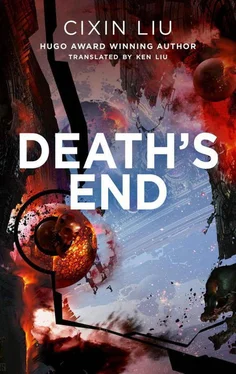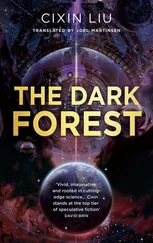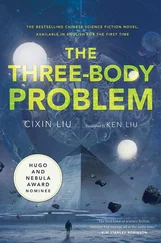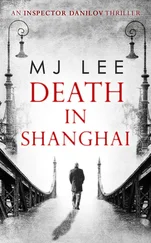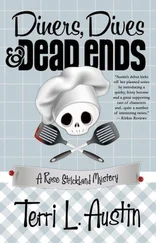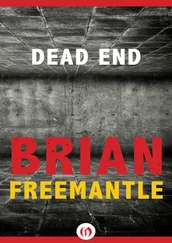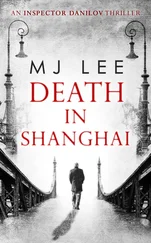Constantine observed the brain in the bag: It was complete, showing no signs of damage. The fragile organ must have been retrieved with great care. Constantine focused on Helena’s fingers grasping the lapels of her cloak. He imagined the slender fingers reaching forward, picking a mushroom nestled in the grass, picking a fresh blossom from the tip of a branch….
The emperor lifted his gaze up toward the wall, as though observing something rising over the horizon beyond. The palace shook with another pounding from the gigantic bombards, but, for the first time, the emperor did not feel the tremors.
If there really are miracles, now is the time for them to manifest.
Constantinople was in desperate straits, but not all hope was lost. After five weeks of bloody warfare, the enemy had also suffered heavy casualties. In some places, the Turkish bodies were piled as high as the walls, and the attackers were as exhausted as the defenders. A few days ago, a brave fleet from Genoa had broken through the blockade of the Bosporus and entered the Golden Horn, bringing precious supplies and aid. Everyone believed that they were the vanguard of more support from the rest of Christendom.
Morale was low among the Ottoman camps. Most commanders secretly wanted to accept the truce terms offered by the Byzantine court and retreat. The only reason the Ottomans had not yet retreated was because of a single man.
He was fluent in Latin, knowledgeable about the arts and sciences, skilled in warfare; he had not hesitated to drown his brother in a bathtub to secure his own path to the throne; he had decapitated a beautiful slave girl in front of his troops to demonstrate that he could not be tempted by women…. Sultan Mehmed II was the axle around which the wheels of the Ottoman war machine revolved. If he broke, the machine would fall apart.
Perhaps a miracle truly has manifested.
“Why do you want to do this?” the emperor asked. He continued to stare at the wall.
“I want to be remembered.” Helena had been waiting for this question.
Constantine nodded. Money or treasure held no allure for this woman; there was no vault or lock that could keep her from what she desired. Still, a prostitute wanted honor.
“You are a descendant of the Crusaders?”
“Yes.” She paused, and carefully added, “Not the fourth.”
The emperor placed his hand on Helena’s head, and she knelt.
“Go, child. If you kill Mehmed II, you will be the savior of Constantinople, and be remembered as a saint forever. A holy woman of the Holy City.”
—————
At dusk, Phrantzes led Helena onto the walls near the Gate of St. Romanus.
On the ground near the walls, the sands had turned black with the blood of the dying; corpses were strewn all over as though they had rained down from the sky. A bit farther away, white smoke from the giant cannons drifted over the battlefield, incongruously light and graceful. Beyond them, the Ottoman camps spread as far as the eye could see, banners as dense as a forest flapping in the moist sea breeze under the lead-gray sky.
In the other direction, Ottoman warships covered the Bosporus like a field of black iron nails securing the blue surface of the sea.
Helena closed her eyes. This is my battlefield; this is my war.
Legends from her childhood, stories of her ancestors recounted by her father, surfaced in her mind: In Europe, on the other side of the Bosporus, there was a village in Provence. One day, a cloud descended on the village, and an army of children walked out of the cloud, red crosses glowing brightly from their armor and an angel leading them. Her ancestor, a man from the village, had answered their call and sailed across the Mediterranean to fight for God in the Holy Land. He had risen through the ranks and become a Templar Knight. Later, he had come to Constantinople and met a beautiful woman, a holy warrior; they had fallen in love and given birth to this glorious family….
Later, when she was older, she had found out the truth. The basic frame of the story was true: Her ancestor had indeed been a member of the Children’s Crusade. It was right after the plague had swept through the villages, and he had joined in the hope of filling his belly. When the man had gotten off the boat, he found himself in Egypt, where he and more than ten thousand other children were sold as slaves. After many years of bondage, he escaped and drifted to Constantinople, where he did indeed meet a woman warrior, a holy knight. However, her fate wasn’t much better than his. The Byzantine Empire had been hoping for the elite troops of Christendom to fight off the infidels. Instead, they received an army of frail women as poor as beggars. The Byzantine court refused to supply these “holy warriors,” and the women knights became prostitutes.
For more than a hundred years, Helena’s “glorious” family had barely eked out a living. By her father’s time, the family’s poverty had grown even more acute. A hungry Helena picked up the trade practiced by her own illustrious ancestor, but when her father found out, he had beaten her, telling her that he would kill her if he ever caught her again… unless she took her clients back home so that he could negotiate a better price and keep the money “for her.”
Helena left home and began to live and ply her trade on her own. She had been to Jerusalem and Trabzon, and even visited Venice. She was no longer hungry, and she dressed in beautiful clothes. But she knew that she was no different from a blade of grass growing in the mud by the road: indistinguishable from the muck, as travelers trampled over her.
And then, God granted Helena a miracle.
Even then, she didn’t model herself after Joan of Arc, another woman who had been divinely inspired. What had the Maid of Orléans received from God? Only a sword. But God had given Helena something that would make her into the holiest woman besides Mary….
“Look, that’s the camp of el-Fātiḥ , the Conqueror.” Phrantzes pointed away from the Gate of St. Romanus.
Helena glanced over and nodded.
Phrantzes handed her another sheepskin bag. “Inside are three portraits of him from different angles and in different clothing. I’ve also given you a knife—you’ll need it. We need his entire head, not just the brain. It’s best if you wait until after nightfall. He won’t be in his tent during the day.”
Helena accepted the bag. “You remember my warning.”
“Of course.”
Don’t follow me. Don’t enter the place where I must go. Otherwise the magic will stop working, forever.
The spy who had followed her last time, in the guise of a friar, had told Phrantzes that Helena had been very careful, turning and looping back on her own path multiple times until she arrived in the Blachernae quarter, the part of the city where bombardment from the Turkish cannons was heaviest.
The spy had watched as Helena entered the ruins of a minaret that had once been part of a mosque. When Constantine had given the order to destroy the mosques in the city, this particular tower had been left alone because, during the last plague, a few diseased men had run inside and died, and no one wanted to get too close. After the siege began, a stray cannonball had blown away the top half of the minaret.
Following Phrantzes’s admonition, the spy had not entered the minaret. But he had questioned two soldiers who had entered it before it had been struck by the stray missile. They told the spy that they had intended to set up a watch station on top of the structure but gave up after realizing it wasn’t tall enough. They told the spy that there was nothing inside except a few bodies that had rotted until they were practically skeletons.
Читать дальше
